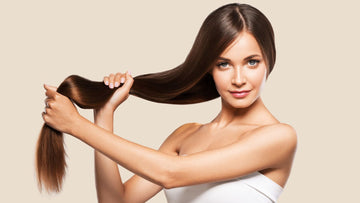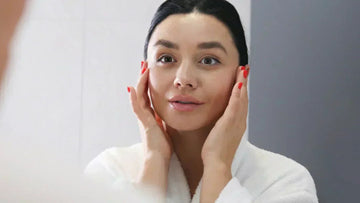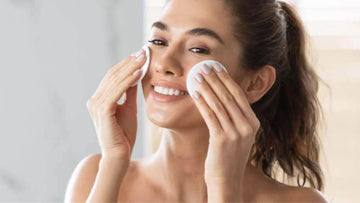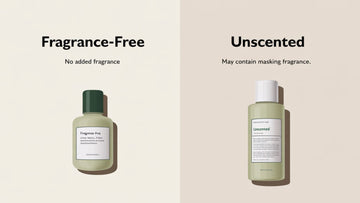Ever wondered why people fuss so much about their hair? It's more than just looking good, honestly. Taking care of your hair, from washing it to getting it cut, actually plays a big part in how you feel every day. It's not just about vanity; it's about your health and how confident you are. So, why is haircare important? Let's get into it and see how looking after your locks can really make a difference to your whole well-being.
Key Takeaways
- Looking after your hair helps you feel better about yourself.
- Your hair can show if you're healthy inside.
- Having a good hair routine keeps your hair strong.
- Proper care can help stop hair from falling out and make it grow.
- Good haircare can make you feel calmer and happier.
The Importance Of Haircare To Your Overall Well-Being

Boosting Your Self-Confidence
It's easy to underestimate the power of a good hair day. When your hair looks great, you feel great, and that confidence radiates outwards. Think about it: a healthy, well-maintained head of hair can make you feel more self-assured in social situations, at work, and even in your personal relationships. The importance of haircare extends beyond mere aesthetics; it's about how you perceive yourself and how you present yourself to the world.
Enhancing Your Appearance
Your hair is a key element of your overall appearance. It frames your face, complements your features, and adds a touch of style to your look. Taking the time to care for your hair – whether it's through regular trims, nourishing treatments, or simply using the right products – can significantly enhance your appearance. It's about putting your best foot forward, and often, that starts with your hair. A consistent care practises can make all the difference.
Impact On Overall Well-Being
The condition of your hair can have a direct impact on your overall well-being. When your hair is healthy and looks good, it can boost your mood and reduce feelings of anxiety or self-consciousness. Conversely, neglecting your hair can lead to feelings of dissatisfaction and even affect your mental health.
Here's a quick look at how haircare can impact your well-being:
- Improved self-esteem
- Reduced stress levels
- Increased social confidence
Ultimately, understanding why is haircare important is about recognising its holistic impact on your life. It's not just about vanity; it's about taking care of yourself, both inside and out.
Hair As A Reflexion Of Your Health
It's easy to think of hair as just something to style, but it's actually a pretty good indicator of what's going on inside your body. Changes in your hair's condition can often be a sign that something's not quite right with your health. Let's explore how your hair can act as a mirror to your overall well-being.
Understanding The Connection Between Hair And Health
Your hair's health is closely linked to your overall health. When your body is getting the nutrients it needs, it shows in your hair. Think of it this way: if you're not feeling your best, your hair probably won't be either. Things like stress, hormonal imbalances, and underlying medical conditions can all affect the way your hair looks and feels. It's not just about using the right shampoo; it's about taking care of yourself from the inside out. For example, changes in hair's appearance can be a sign of something more.
Hair As An Indicator Of Nutritional Intake
What you eat has a huge impact on your hair. If you're not getting enough vitamins and minerals, your hair might become dry, brittle, or even start to fall out. Nutrients like iron, zinc, biotin, and vitamin D are all essential for healthy hair growth. A balanced diet is key, but sometimes supplements can help if you're deficient in certain areas. Here's a quick look at some key nutrients and their role in hair health:
- Iron: Helps carry oxygen to hair follicles.
- Zinc: Important for hair tissue growth and repair.
- Biotin: Supports keratin production.
- Vitamin D: May help create new hair follicles.
Recognising Underlying Health Issues Through Hair
Sometimes, changes in your hair can be a sign of a more serious health problem. For example, sudden hair loss could be related to thyroid issues, autoimmune diseases, or even certain medications. It's important to pay attention to any unusual changes in your hair and talk to your doctor if you're concerned. Early detection is often key to managing these conditions effectively. It's not always just about aesthetics; your hair can be an early warning system for your health.
Your hair's condition can reflect your overall health. If you notice significant changes in your hair's texture, thickness, or growth, it's worth investigating potential underlying health issues. Don't ignore these signs; they could be telling you something important about your well-being.
Maintaining Healthy Hair Through Proper Care
Finding The Right Haircare Routine
Figuring out what works for your hair can feel like a never-ending quest, right? Everyone's hair is different, so what works wonders for your mate might leave your hair feeling like straw. Experimentation is key. Think about your hair type – is it oily, dry, fine, thick, coloured? All these things matter. Don't be afraid to try different shampoos, conditioners, and styling products until you find the perfect combination. It might take a while, but your hair will thank you for it.
The Role Of Shampoo And Conditioner
Shampoo and conditioner are the bread and butter of any haircare routine. Shampoo cleanses your scalp and hair, removing dirt, oil, and product build-up. But it's easy to overdo it. Washing your hair too often can strip it of its natural oils, leaving it dry and brittle. Conditioner, on the other hand, replenishes moisture and helps to detangle your hair, making it more manageable. Choosing the right shampoo and conditioner for your hair type is super important. If you've got oily hair, look for lightweight, clarifying formulas. If your hair is dry, opt for hydrating and moisturising products.
The Importance Of Regular Haircuts
I know, I know, getting a haircut can feel like a chore, especially when you're trying to grow your hair long. But trust me, regular trims are essential for maintaining healthy hair.
Regular haircuts get rid of split ends, which can travel up the hair shaft and cause even more damage. Plus, trimming your hair makes it look thicker and fuller, even if you're only taking off a tiny bit. Aim to get a trim every 6-8 weeks to keep your hair in tip-top condition.
Here's a quick guide:
- Every 6-8 weeks: For maintaining short styles and preventing split ends.
- Every 8-12 weeks: For medium-length hair to keep it healthy.
- Every 12-16 weeks: For long hair, focusing on removing damaged ends.
Preventing Hair Loss And Promoting Growth
Hair loss is something many of us worry about, and thankfully, there are things we can do to prevent it and encourage new growth. It's not just about genetics; our daily habits and the products we use play a huge role. Let's look at some effective strategies.
Choosing the Right Shampoo For Hair Loss Prevention
Selecting the right shampoo is the first step in preventing hair loss. It sounds simple, but it can make a big difference. You need to consider your hair type – is it oily, dry, fine, or thick? Shampoos designed for oily hair will strip too much moisture from dry hair, and vice versa. Look for shampoos that are free from harsh chemicals like sulphates and parabens, as these can damage your hair follicles and lead to breakage. Instead, opt for shampoos with natural ingredients like biotin, keratin, and argan oil, which can nourish your scalp and strengthen your hair. Don't be afraid to experiment a little to find what works best for you. A good shampoo will gently cleanse your scalp without leaving your hair feeling dry or brittle. Also, consider healthy hair shampoos that promote scalp health.
Effective Strategies To Prevent Hair Loss
Preventing hair loss involves a multi-pronged approach. It's not just about what you put on your hair, but also how you treat it and what you put into your body. Here are some strategies that can help:
- Diet: A balanced diet rich in vitamins and minerals is essential. Make sure you're getting enough iron, zinc, and vitamin D, as deficiencies in these nutrients can contribute to hair loss.
- Stress Management: High stress levels can wreak havoc on your hair. Find healthy ways to manage stress, such as exercise, meditation, or spending time in nature.
- Gentle Hair Care: Avoid harsh styling practises like tight braids, high heat, and chemical treatments. These can damage your hair follicles and lead to breakage. Use a wide-toothed comb to detangle your hair gently, and avoid brushing it when it's wet, as it's more prone to damage.
It's important to remember that hair loss can sometimes be a sign of an underlying health condition. If you're experiencing sudden or excessive hair loss, it's always a good idea to consult with a doctor to rule out any medical issues.
Maintaining Hair Longevity
Maintaining hair longevity is about creating a sustainable routine that supports healthy hair growth over the long term. It's not a quick fix, but a lifestyle change. Regular trims are important to prevent split ends from travelling up the hair shaft and causing breakage. Protect your hair from environmental damage by wearing a hat or scarf when you're out in the sun or wind. And finally, be patient. Hair growth takes time, so don't get discouraged if you don't see results overnight. With consistent care and attention, you can maintain faster, healthier hair growth and enjoy a full, healthy head of hair for years to come.
The Psychological Benefits Of Good Haircare
Improving Mental And Emotional Well-Being
It's easy to underestimate how much our hair affects our mood. A good hair day can genuinely turn your whole day around. When your hair looks good, you feel good, and that feeling can ripple through other areas of your life. It's not just about vanity; it's about feeling put-together and ready to face the world.
Reducing Anxiety And Self-Esteem Issues
Unhealthy hair can be a real downer. Hair problems like thinning, dryness, or just a bad haircut can lead to increased anxiety and lower self-esteem. It's like having a constant reminder of something you're not happy with. Taking care of your hair can alleviate these feelings, giving you one less thing to worry about.
Fostering A Sense Of Self-Care
Looking after your hair is an act of self-care. It's about taking the time to do something nice for yourself, whether it's a simple hair mask or a trip to the salon. These small acts can have a big impact on your overall well-being. It's a way of saying, "I'm worth it," and that's a powerful message to send yourself.
When you invest time and effort into your hair, you're investing in yourself. It's a tangible way to show yourself some love and attention, which can boost your mood and self-perception. It's not just about the hair; it's about the ritual and the feeling of accomplishment that comes with it.
Professional Haircare For Optimal Health

Sometimes, doing it yourself just doesn't cut it, does it? We all try our best with at-home treatments, but there's a certain level of care and attention you can only get from a professional. Let's explore why professional haircare is so important for achieving and maintaining optimal hair health.
The Benefits Of Visiting A Reputable Salon
Visiting a salon isn't just about pampering yourself; it's an investment in your hair's long-term health. Salons offer a range of treatments and services tailored to your specific hair type and concerns. Think of it as a trip to the doctor, but for your hair! A good salon will provide:
- Expert consultations to assess your hair's condition.
- Professional treatments like deep conditioning and scalp therapies.
- Precise haircuts that promote healthy growth and prevent split ends.
Utilising Quality Haircare Products
Ever wondered why your hair never looks quite as good as when you leave the salon? It's often down to the products they use. Salons have access to high-quality, professional-grade products that you simply can't find in your local supermarket. These products are often more concentrated and effective, delivering better results. Plus, stylists can recommend the right shampoo and conditioner for your hair type, ensuring you're using the best possible products at home.
Personalised Advice From Hair Stylists
One of the biggest advantages of professional haircare is the personalised advice you receive. Hair stylists are trained to assess your hair's unique needs and provide tailored recommendations. They can offer tips on everything from styling techniques to product choices, helping you to create a haircare routine that works for you. They can also spot potential problems early on, such as signs of damage or underlying health issues, and advise you on how to address them. It's like having a personal hair guru!
Think of your hair stylist as a partner in your haircare journey. They're there to guide you, support you, and help you achieve your hair goals. Don't be afraid to ask questions and seek their advice – they're the experts, after all!
Conclusion
So, there you have it. Looking after your hair isn't just about looking good, is it? It's a big part of how we feel about ourselves, and even how healthy we are overall. When your hair feels good, you feel good. It's a simple thing, but it makes a real difference to your day-to-day. So, next time you're thinking about your hair, remember it's more than just strands; it's a bit of self-care that really counts.
Frequently Asked Questions
Why is looking after your hair so important?
Looking after your hair is super important for how you feel about yourself and your overall health. When your hair looks good, you tend to feel more confident and happy. It's also a sign of how healthy you are inside.
Can my hair show if I have health problems?
Yes, definitely! Your hair can give clues about your health. For example, if your hair is really dry or breaks easily, it might mean you're not getting enough important vitamins or that your hormones are a bit out of whack.
What's the best way to keep my hair healthy?
To keep your hair healthy, you should use the right shampoo and conditioner for your hair type, get regular trims to cut off split ends, and try not to use too much heat on it. Eating well and drinking plenty of water also helps!
How can I stop my hair from falling out?
If you're worried about losing hair, try to use shampoos made for hair loss prevention. Also, be gentle with your hair when brushing it, avoid tight hairstyles, and try to manage stress, as stress can sometimes lead to hair loss.
Does looking after my hair help my mind?
Taking care of your hair can really boost your mood. When your hair feels good, you feel good, which can make you less stressed and more confident. It's a nice way to show yourself some care.
Why should I go to a professional salon for my hair?
Going to a good hair salon means you get expert advice and treatments tailored just for you. They use top-quality products and can teach you how to keep your hair looking its best at home.





